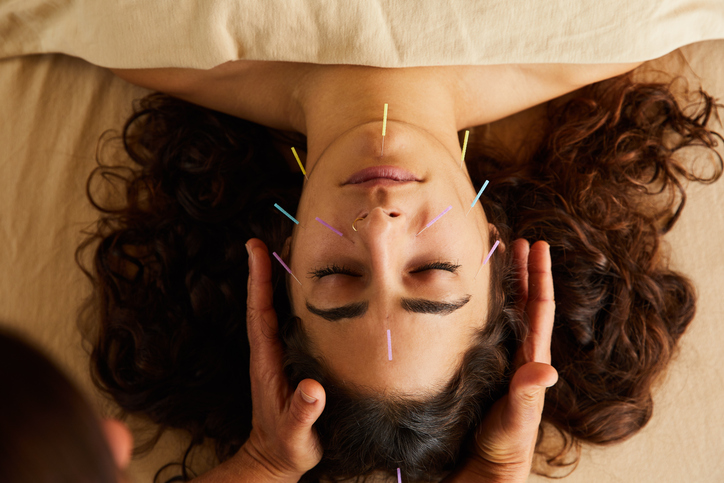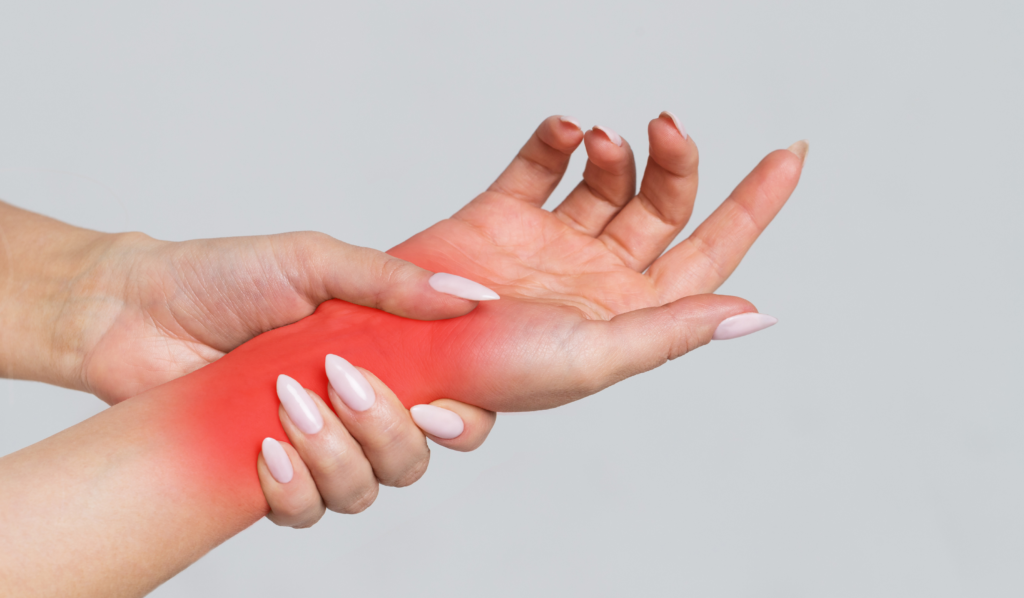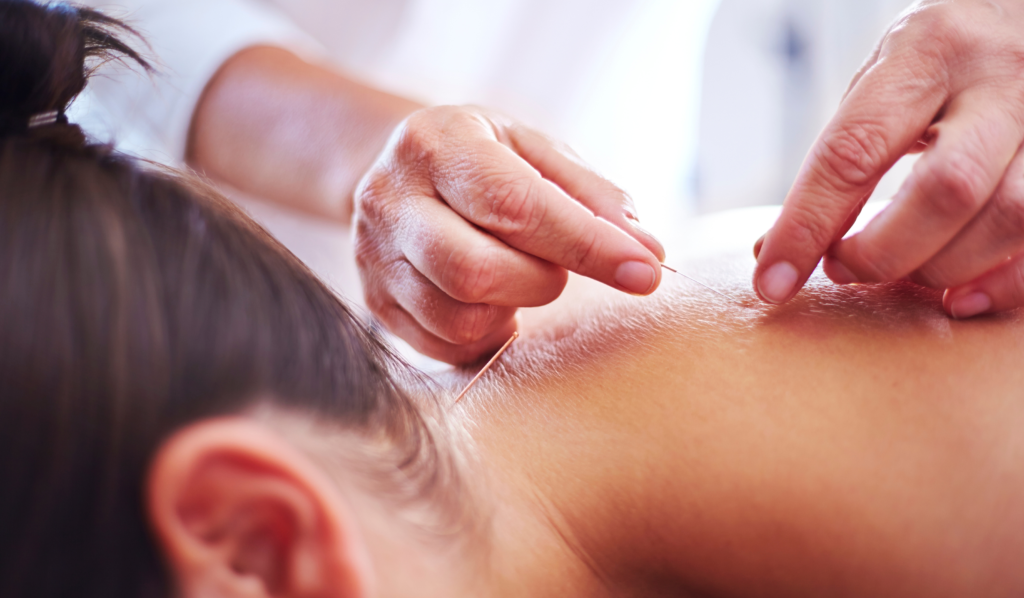Acupuncture for Pinched Nerve: Natural Pain Relief and Recovery
Nerve pain can be unpredictable, sometimes appearing as a dull ache and other times as a sharp, radiating discomfort that interrupts daily life. Simple movements become difficult, and the frustration of persistent pain can take a toll on both physical and emotional well-being. Whether it’s discomfort in the neck, lower back, or extremities, nerve compression makes even the most routine activities feel exhausting.
For many, the search for relief leads to pain medications, anti-inflammatory treatments, or physical therapy. While these approaches may offer temporary ease, they often fail to address the root cause. Acupuncture provides a holistic alternative that encourages the body to heal naturally. By restoring balance, improving circulation, and reducing inflammation, acupuncture offers a path to long-term relief without reliance on medication.
Acupuncture for Pinched Nerve: Natural Pain Relief and Recovery
Nerve pain can be unpredictable, sometimes appearing as a dull ache and other times as a sharp, radiating discomfort that interrupts daily life. Simple movements become difficult, and the frustration of persistent pain can take a toll on both physical and emotional well-being. Whether it’s discomfort in the neck, lower back, or extremities, nerve compression makes even the most routine activities feel exhausting.
For many, the search for relief leads to pain medications, anti-inflammatory treatments, or physical therapy. While these approaches may offer temporary ease, they often fail to address the root cause. Acupuncture provides a holistic alternative that encourages the body to heal naturally. By restoring balance, improving circulation, and reducing inflammation, acupuncture offers a path to long-term relief without reliance on medication.
Key Takeaways
-
Acupuncture for pinched nerve pain helps reduce inflammation and promote circulation, supporting long-term nerve recovery without the side effects of medication.
-
Pinched nerves occur when surrounding tissue compresses a nerve, often causing radiating pain, tingling, or weakness in the affected area.
-
Untreated pinched nerves can lead to permanent nerve damage, including chronic pain, numbness, and muscle atrophy.
-
Common acupuncture points like LI4 and GB20 are selected to release tension, improve blood flow, and target specific nerve compression areas.
-
Compared to conventional treatments, acupuncture addresses the root cause of nerve compression instead of masking symptoms with temporary relief.
Understanding Pinched Nerves
Nerves are responsible for transmitting signals throughout the body, allowing muscles to move and sensations to be felt. When a nerve becomes compressed by surrounding tissues such as bones, muscles, or cartilage, the disruption leads to pain, numbness, tingling, or weakness. This condition can affect various parts of the body, from the spine to the hands and feet, often worsening without proper intervention.
Common Causes of Nerve Compression
Herniated discs pressing against spinal nerves
Muscle tightness or swelling restricting nerve pathways
Prolonged poor posture creating pressure on the neck or lower back
Repetitive movements leading to inflammation and nerve irritation
Injuries causing localized swelling and compression
The severity of symptoms depends on how long the nerve has been compressed. Mild cases may cause temporary discomfort, while prolonged compression can lead to chronic pain or muscle weakness.
Common Symptoms of a Pinched Nerve
Sharp or Radiating Pain – A burning, stabbing, or aching pain that spreads along the nerve’s pathway.
Tingling or Numbness – A “pins and needles” sensation or loss of feeling in the affected area.
Muscle Weakness – Reduced strength or difficulty using the affected muscles.
Increased Pain with Movement – Pain may worsen with certain movements, positions, or pressure on the nerve.
Sensation of a Limb “Falling Asleep” – A frequent feeling of the affected area being asleep or slow to respond.
Temperature Sensitivity – Some people experience changes in sensitivity to hot or cold in the affected area.
Common Areas Affected by a Pinched Nerve
Neck (Cervical Radiculopathy) – Pain radiates to the shoulders, arms, and hands.
Lower Back (Lumbar Radiculopathy/Sciatica) – Pain spreads down the legs, often affecting one side.
Wrist (Carpal Tunnel Syndrome) – Numbness and tingling in the fingers and hands.
Elbow (Cubital Tunnel Syndrome) – Pain and tingling along the inner arm to the fingers.
If left untreated, a pinched nerve can lead to chronic pain, permanent nerve damage, or muscle weakness, making early intervention crucial.
Risks of a Pinched Nerve
If left untreated, a pinched nerve can lead to serious complications:
Chronic Pain – Prolonged nerve compression can cause long-term discomfort and increased sensitivity.
Permanent Nerve Damage – Nerves that remain compressed for extended periods may lose function permanently.
Loss of Muscle Strength – Muscle atrophy and weakness can develop, making movement difficult
Reduced Mobility – Stiffness and discomfort may limit flexibility and range of motion.
Tingling or Numbness That Doesn’t Go Away – Long-term nerve pressure may result in persistent numbness.
Coordination Issues – Some individuals experience difficulty gripping objects or maintaining balance.
Seeking treatment early can help prevent these complications.
How Acupuncture Helps with a Pinched Nerve
Acupuncture stimulates the body’s natural healing mechanisms by targeting points that encourage circulation, release tension, and reduce inflammation. Rather than masking pain, acupuncture works to restore balance, allowing the nervous system to function without obstruction.
Restores Energy Flow (Qi): Acupuncture unblocks pathways in the body, promoting better nerve communication and reducing pain signals.
Reduces Inflammation: Improved circulation helps clear out stagnation and swelling, easing pressure on compressed nerves.
Relaxes Tight Muscles: Targeted acupuncture points release tension in overworked muscles that may be pressing on nerves.
Supports Nerve Regeneration: Enhanced blood flow delivers oxygen and nutrients essential for nerve repair and function.
Many individuals experience relief after just a few sessions, with continued treatments providing long-term improvement.
Best Acupuncture Points for Pinched Nerve Relief
Each case of nerve compression is unique, but certain acupuncture points are known for their effectiveness in reducing nerve-related pain.
LI4 (Hegu) – Alleviates pain and enhances circulation, reducing inflammation
GB20 (Fengchi) – Releases tension in the neck and shoulders, helpful for pinched nerves in the upper body
BL23 (Shenshu) – Supports lower back health and relieves sciatic nerve pain
ST36 (Zusanli) – Strengthens the body’s energy and supports nerve recovery
Ashi Points – Specific trigger points around the affected nerve for targeted relief
These acupuncture points are selected based on individual symptoms, ensuring a customized approach that addresses both pain relief and the underlying cause.
Acupuncture vs. Conventional Treatments for Pinched Nerve
Pain management for a pinched nerve often involves anti-inflammatory medications, physical therapy, or in severe cases, surgery. While these approaches may reduce discomfort, they do not always prevent the issue from returning. Acupuncture takes a different approach by treating the body as a whole, allowing for long-term healing rather than short-term relief.
| Treatment | Benefits | Considerations |
| Acupuncture | Relieves pain, reduces inflammation, improves circulation, and promotes healing naturally | Requires multiple sessions for optimal results |
| Pain Medication | Temporarily reduces pain and inflammation | Does not address the root cause, potential side effects |
| Physical Therapy | Strengthens muscles, improves mobility, and enhances flexibility | Progress may take time and requires consistency |
| Surgery | Provides relief for severe cases | Invasive, potential complications, long recovery time |
| Chiropractic Care | Improves spinal alignment, relieves pain, and enhances mobility | May not be suitable for all conditions, requires multiple visits |
| Massage Therapy | Relaxes muscles, reduces tension, and improves circulation | Temporary relief, does not address underlying structural issues |
| Cupping Therapy | Enhances circulation, reduces muscle tension, and promotes healing | Temporary bruising, requires trained practitioners |
Other Treatments
| Other Treatments | Benefits | Considerations |
| Electrotherapy (TENS, EMS) | Reduces pain, stimulates nerves and muscles, and promotes healing | Effectiveness varies, may not be a long-term solution |
| Corticosteroid Injections | Provides fast-acting relief for inflammation and pain | Temporary solution, potential side effects with repeated use |
| Regenerative Medicine (PRP, Stem Cell Therapy) | Stimulates tissue healing and regeneration | Expensive, not always covered by insurance, requires medical supervision |
| Herbal Medicine (TCM, Ayurveda) | Uses natural remedies to reduce inflammation and support healing | Effects vary, requires knowledge of proper usage and interactions |
| Heat and Cold Therapy | Reduces inflammation (cold) and relaxes muscles (heat) | Temporary relief, may not address the root cause |
| Mind-Body Therapies (Yoga, Meditation, Tai Chi) | Improves flexibility, reduces stress, and enhances overall well-being | Requires consistency, results may take time |
| Dietary and Nutritional Therapy | Supports overall health, reduces inflammation, and enhances recovery | Requires long-term lifestyle changes for effectiveness |
| Osteopathic Manipulative Therapy (OMT) | Improves joint mobility, reduces muscle tension, and enhances circulation | Requires a trained specialist, effectiveness varies |
Acupuncture can be combined with other treatments to enhance results, providing a non-invasive complement to physical therapy or rehabilitation programs.
What to Expect During an Acupuncture Session
A typical acupuncture session for a pinched nerve begins with an assessment of symptoms and lifestyle factors that may contribute to nerve compression. Based on this evaluation, a personalized treatment plan is created.
- Consultation: The acupuncturist reviews medical history and discusses areas of discomfort
- Treatment: Fine needles are placed in strategic points to release tension, promote circulation, and ease nerve pressure
- Session Duration: Treatments typically last 30 to 60 minutes, with most patients experiencing a sense of relaxation during the session
- Follow-Up Care: A series of treatments may be recommended for ongoing relief, often complemented by lifestyle advice to prevent recurrence
Results vary, but many individuals notice improvements within a few sessions as nerve function is restored and inflammation decreases.
Additional Traditional Chinese Medicine (TCM) Approaches for Nerve Pain
Acupuncture is just one part of a holistic healing approach. Traditional Chinese Medicine offers additional therapies that support nerve recovery and enhance overall well-being.
- Herbal Medicine: Formulas containing anti-inflammatory and nerve-healing herbs such as Huang Qi (Astragalus) and Du Zhong (Eucommia Bark) aid in reducing discomfort
- Cupping Therapy: Encourages circulation, relaxes muscles, and alleviates pressure on nerves
- Acupressure: Applying pressure to key acupuncture points at home can help extend the benefits between sessions
- Qi Gong and Tai Chi: Gentle exercises improve flexibility, posture, and circulation, reducing the likelihood of recurring nerve compression
These treatments can be integrated with acupuncture to create a comprehensive approach to healing.
Safety and Considerations for Acupuncture
Acupuncture is widely recognized as a safe and effective treatment for nerve pain. When performed by a licensed acupuncturist, the risks are minimal.
Mild soreness or slight bruising at needle sites may occur but typically resolves quickly
Selecting a qualified acupuncturist ensures proper technique and optimal results
Acupuncture is a drug-free therapy with no long-term side effects, making it a viable option for those seeking an alternative to medication
Patients with underlying medical conditions should consult with their healthcare provider before starting treatment.
Nerve Damage, Neuropathy, and Neuropathic Pain: Long-Term Effects of a Pinched Nerve
If a pinched nerve remains untreated, it can lead to nerve damage, neuropathy, and neuropathic pain, causing chronic pain, weakness, and sensory issues. Prolonged compression disrupts nerve signaling, leading to nerve dysfunction that may become permanent.
Nerve Damage – Long-term compression can lead to nerve deterioration, affecting function and mobility.
Neuropathy – The nerve may become damaged or inflamed, leading to persistent numbness, weakness, and coordination issues.
Neuropathic Pain – If the nerve damage progresses, it can cause chronic, burning, or electric shock-like pain, even when no external pressure is present.
| Signs of Nerve Damage and Neuropathy | Description |
| Chronic Numbness or Tingling | Persistent “pins and needles” sensation in the affected area. |
| Burning or Electric Shock Pain | Sharp, shooting pain that may worsen over time, especially at night. |
| Muscle Weakness or Atrophy | Loss of strength, making daily tasks difficult. |
| Reduced Reflexes and Sensory Changes | Impaired balance, temperature sensitivity, and coordination issues. |
| How Acupuncture Helps with Nerve Damage | Benefits |
| Stimulating Nerve Regeneration | Encourages natural repair and restores nerve function. |
| Improving Circulation | Enhances blood flow, ensuring proper oxygen and nutrient delivery to nerves. |
| Reducing Pain and Inflammation | Provides relief from discomfort and supports nerve healing. |
If left unaddressed, these conditions may become irreversible, making early intervention essential. Acupuncture is a natural therapy that may help stimulate nerve regeneration, improve circulation, and reduce inflammation to support long-term nerve health.
Restoring Comfort and Mobility with Acupuncture
Nerve pain can feel overwhelming, affecting mobility, sleep, and overall quality of life. Acupuncture provides a natural, non-invasive solution that helps the body heal from within. By reducing inflammation, improving circulation, and restoring balance, acupuncture not only relieves pain but also promotes long-term nerve health.
At ACA Acupuncture and Wellness, our skilled practitioners offer personalized care designed to address the unique needs of each patient. Whether the goal is pain relief, improved mobility, or preventing future nerve compression, acupuncture offers a safe and effective path toward recovery. With the right approach, relief is possible, and daily activities can once again feel effortless.
Source:
Feng, Z., Cui, S., Yang, H., Wang, Y., Zhou, X., Wong, J., Lai, L., Yang, Z., Huang, B., Zheng, H., & Xu, M. (2023). Acupuncture for neuropathic pain: A meta-analysis of randomized control trials. Frontiers in Neuroscience, 17, Article 9868276.
Frequently Asked Questions
How many acupuncture sessions are needed for a pinched nerve?
The number of sessions varies depending on the severity of the condition, how long the nerve has been compressed, and the individual’s response to treatment. Some patients experience relief after just a few sessions, while chronic cases may require ongoing therapy for several weeks or months. A licensed acupuncturist can assess the situation and create a personalized treatment plan for the best results.
Is acupuncture a long-term solution for a pinched nerve?
Acupuncture can be an effective long-term solution, especially when combined with other supportive therapies such as stretching, ergonomic adjustments, and strengthening exercises. It not only helps manage pain but also addresses underlying issues such as muscle tightness and poor circulation, which contribute to nerve compression. While results vary from person to person, many find that regular acupuncture sessions help maintain nerve health and prevent future flare-ups.
Can acupuncture reduce inflammation around a pinched nerve?
Yes, acupuncture helps reduce inflammation by stimulating the body’s natural anti-inflammatory response and increasing blood flow to the affected area. This improved circulation brings oxygen and nutrients to the nerve, which can help speed up recovery. As inflammation decreases, pain and mobility often improve, making acupuncture a beneficial treatment for nerve compression.
Does acupuncture help with nerve regeneration?
Acupuncture may support nerve regeneration by encouraging blood circulation, reducing oxidative stress, and stimulating nerve repair mechanisms. Studies suggest that acupuncture can activate nerve growth factors and improve nerve conduction, which is crucial for healing. While results vary, many patients report improved nerve function and reduced symptoms after consistent treatment.
Are there any side effects of acupuncture for a pinched nerve?
Side effects from acupuncture are rare and typically mild, including slight soreness, minor bruising, or temporary fatigue after a session. Some people may feel a deep sense of relaxation or lightheadedness, but these effects usually subside quickly. Compared to medication or surgery, acupuncture is a low-risk treatment with minimal adverse effects.
Can acupuncture prevent future pinched nerves?
Yes, regular acupuncture sessions can help prevent future pinched nerves by maintaining healthy circulation, reducing muscle tension, and promoting proper posture. Acupuncture also helps regulate the nervous system, which can improve resilience against physical stress and repetitive strain injuries. When combined with lifestyle modifications such as exercise and ergonomic support, acupuncture can be an effective tool for long-term nerve health.
Contact ACA Acupuncture & Wellness
Get in Touch
Newsletter Sign Up
LOCATIONS
MANHATTAN
QUEENS
NEW JERSEY
CALIFORNIA

ACA Franchise Opportunities
The over $4 billion US acupuncture market offers a great opportunity with over 10% annual growth rates and a continuing flow of new patients interested in the benefits of acupuncture.









